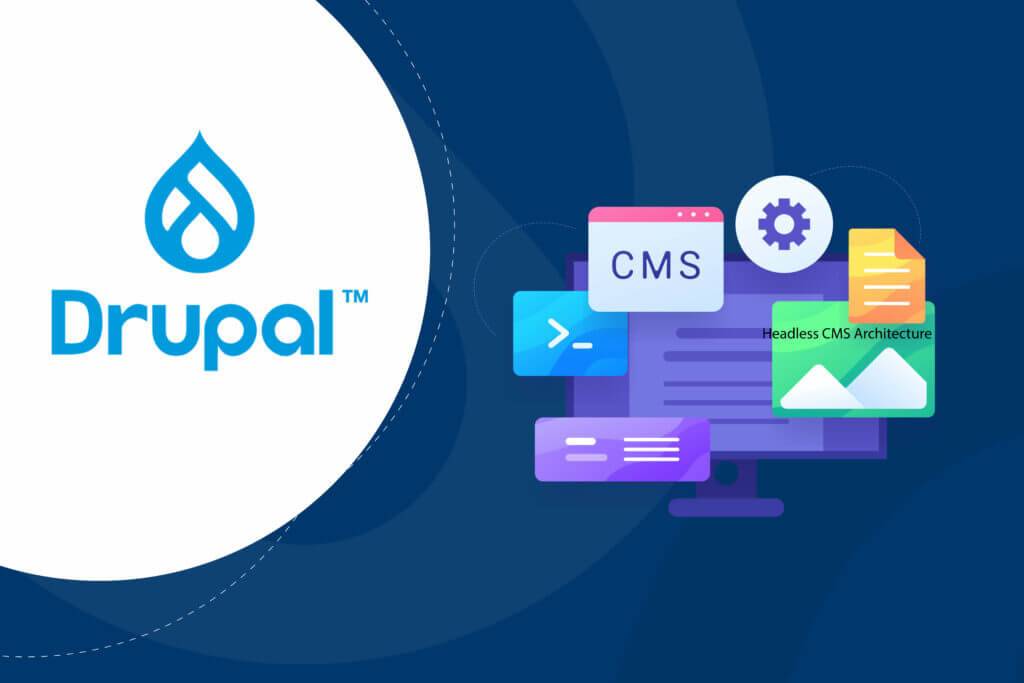Introduction: Drupal is a crucial technology for web development, ensuring robust, scalable, and user-friendly websites. Its significance and global popularity make it a preferred choice for developers worldwide.
Drupal, an open-source CMS since 2001, offers versatile capabilities for website creation, web applications, and online communities, with scalability and extensive module library.
Flexibility and Customization
Drupal offers unparalleled flexibility, allowing developers to tailor websites to meet unique requirements. It utilizes a modular architecture, which means you can add or remove features as needed by simply installing or uninstalling modules. This flexibility ensures that your website remains highly customizable, whether you are building a blog, an e-commerce site, or a complex enterprise-level application.
Scalability
Scalability is a critical factor in web development, especially as websites grow and attract more users. Drupal excels in this regard, enabling websites to scale seamlessly. It can handle a wide range of content types and user interactions without compromising performance. This scalability makes Drupal an ideal choice for both small businesses and large enterprises.
Security
Security is paramount in web development, and Drupal takes it seriously. The Drupal community actively monitors and addresses security issues, releasing regular updates and patches to keep websites safe from vulnerabilities. Many government agencies, educational institutions, and high-profile organizations trust Drupal for its robust security features.
SEO Optimization
Search engine optimization (SEO) is vital for improving a website’s visibility on search engines like Google. Drupal comes with built-in SEO features and offers various modules and tools that allow developers to optimize content for better search engine rankings. From customizable URLs to XML sitemaps and metadata management, Drupal provides the tools needed to boost your website’s SEO performance.
Responsive Design
With the increasing use of mobile devices, responsive web design is a necessity. Drupal embraces responsive design principles, ensuring that your website looks and functions seamlessly across various screen sizes and devices. This adaptability is crucial for providing a positive user experience and improving your website’s SEO.
Community and Support
Drupal boasts a robust and vibrant community of developers, designers, and users. This community-driven approach ensures that there is ample support and resources available for newcomers and experienced developers alike. You can tap into forums, documentation, and events to enhance your Drupal skills and troubleshoot any issues you encounter during development.
Conclusion
The role of Drupal in web development cannot be overstated. Its flexibility, scalability, security, SEO optimization, responsive design, and strong community support make it a top choice for developers seeking a powerful CMS. Whether you are building a small blog or a complex enterprise-level application, Drupal has the tools and features to make your project a success. Embrace Drupal as your technology of choice, and you’ll be well on your way to creating websites that stand out in the digital landscape.
1) What is Drupal, and how does it differ from other web development technologies?
Drupal is an open-source content management system (CMS) known for its flexibility and scalability. Unlike some other CMS options, Drupal allows developers to create highly customized websites and web applications, making it a preferred choice for projects with unique requirements.
2) Is Drupal suitable for small businesses, or is it primarily for large enterprises?
Drupal is suitable for both small businesses and large enterprises. Its scalability means that it can grow with your business. Small businesses can start with a basic Drupal setup and expand as they grow, while large enterprises can build complex websites and applications with Drupal’s robust features.
3) How does Drupal contribute to SEO optimization?
Drupal offers several built-in features and modules designed to enhance SEO. These include customizable URLs, XML sitemaps, and tools for managing metadata. Developers can leverage these features to optimize their content for search engines, improving a website’s visibility in search results.
4) Is Drupal secure for building websites and applications?
Yes, Drupal is known for its strong security features. The Drupal community actively monitors and addresses security vulnerabilities, releasing regular updates and patches. Many government agencies and high-profile organizations trust Drupal for its security measures, making it a secure choice for web development projects.
5) What kind of support and resources are available for Drupal developers?
Drupal has a thriving community of developers, designers, and users. Developers can access a wealth of resources, including forums, documentation, and events. This community-driven approach ensures that there is ample support available for those new to Drupal and experienced developers looking to enhance their skills or troubleshoot issues during development.


